 Editor’s note: This story was originally published in Issue Two of Life & Thyme. To read the full feature in its entirety, purchase Issue Two from our online shop or from one of our stockists.
Editor’s note: This story was originally published in Issue Two of Life & Thyme. To read the full feature in its entirety, purchase Issue Two from our online shop or from one of our stockists.
For Piero Bambi, President of La Marzocco, there are five elements that contribute to pulling a truly great espresso: miscela, macinazione, mano del barista, macchina, and manutenzione. In our slightly less romantic language, this is interpreted as: the blend, the grind, the expertise, the machine, and the aftercare. Together, they form the five fingers of mano, or “the hand.” Each component just as important as the one preceding it and when one fails, it all does.
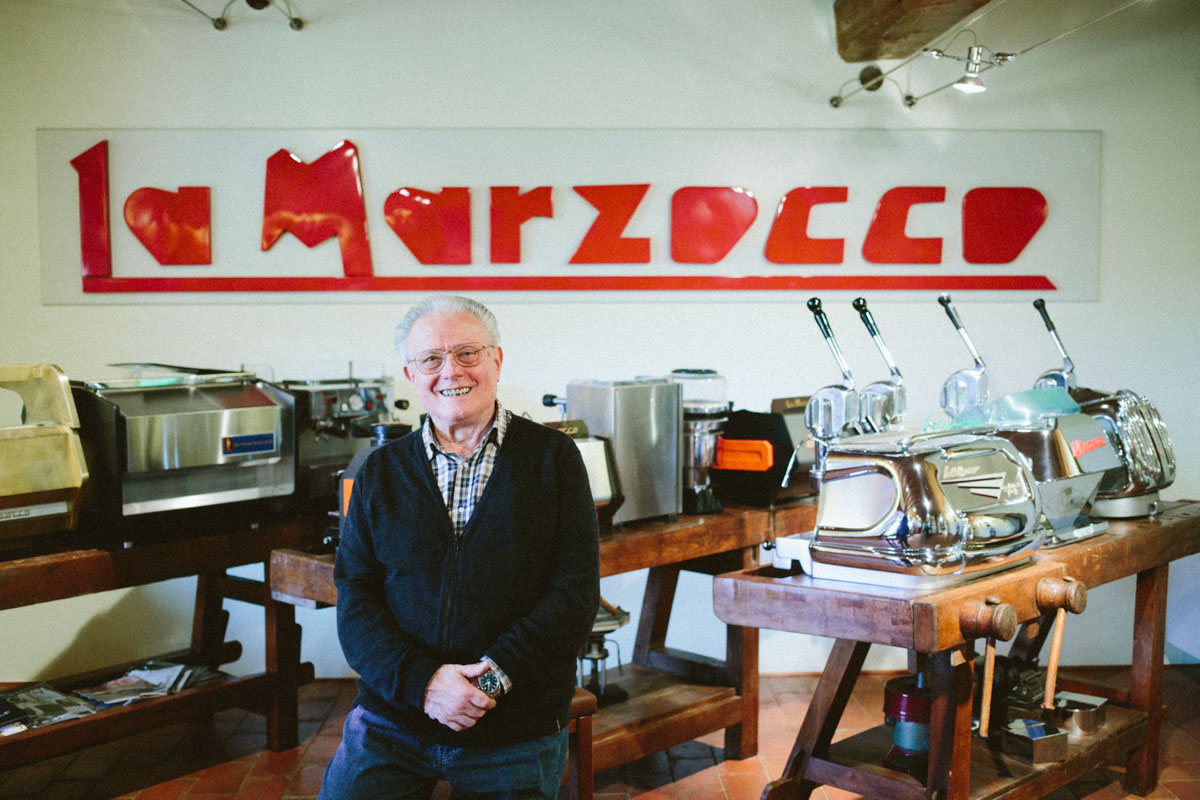
When fully exploring the facilities of La Marzocco in its hometown of Florence, Italy, it’s difficult to ignore the correlation between pulling a great espresso and the company producing the devices to do so. Where defining factors such as its team, work ethic, craftsmanship, technical innovation, and the dedicated conservation of its lineage all play an important role.
At its core, La Marzocco is a family business. Established in 1927 by Piero’s father, Giuseppe Bambi, and his brother Bruno, the company still operates today like a small “mom and pop” business—or in this instance “father and son”—despite its global recognition and cult following. With Piero as the house patriarch, all of the personnel seem as though the Bambi blood could be coursing through their veins as well. This feeling of family is vital to the daily goings at the company.
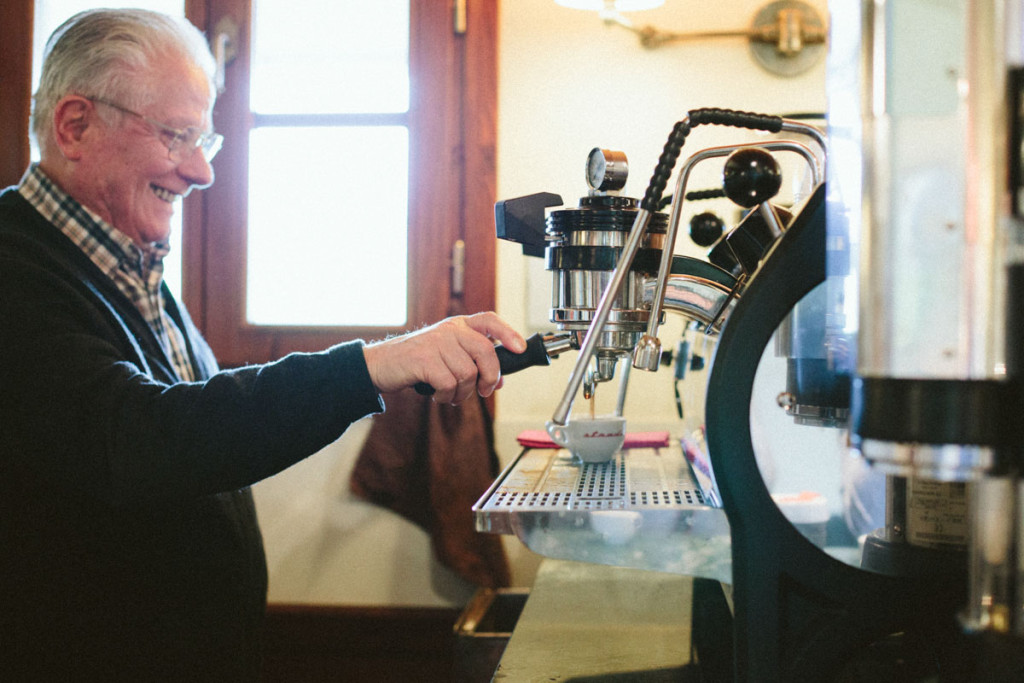
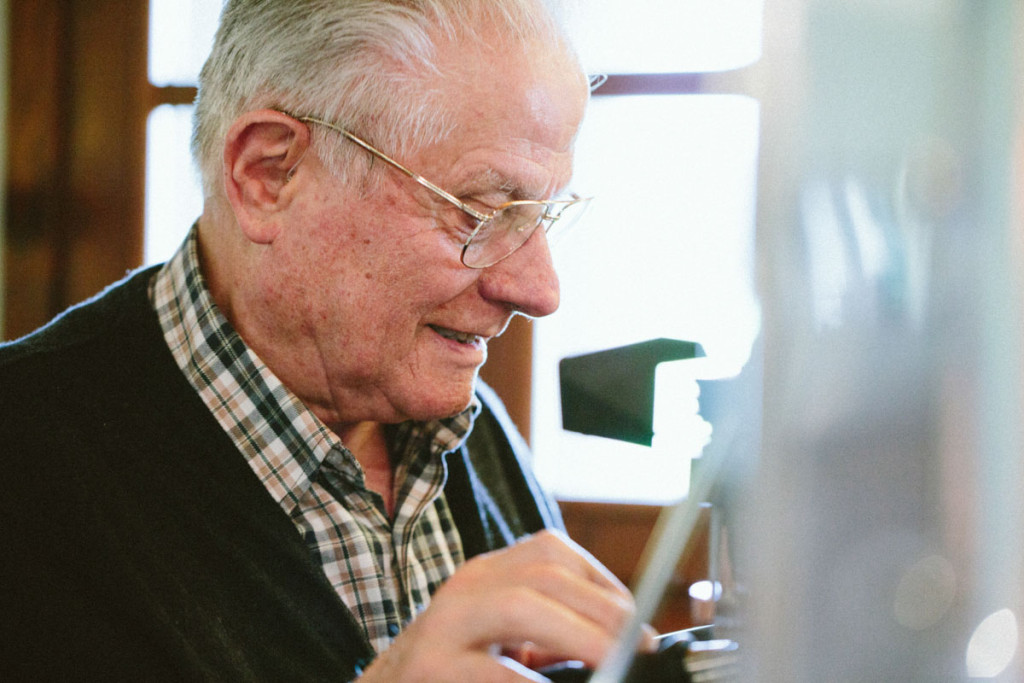
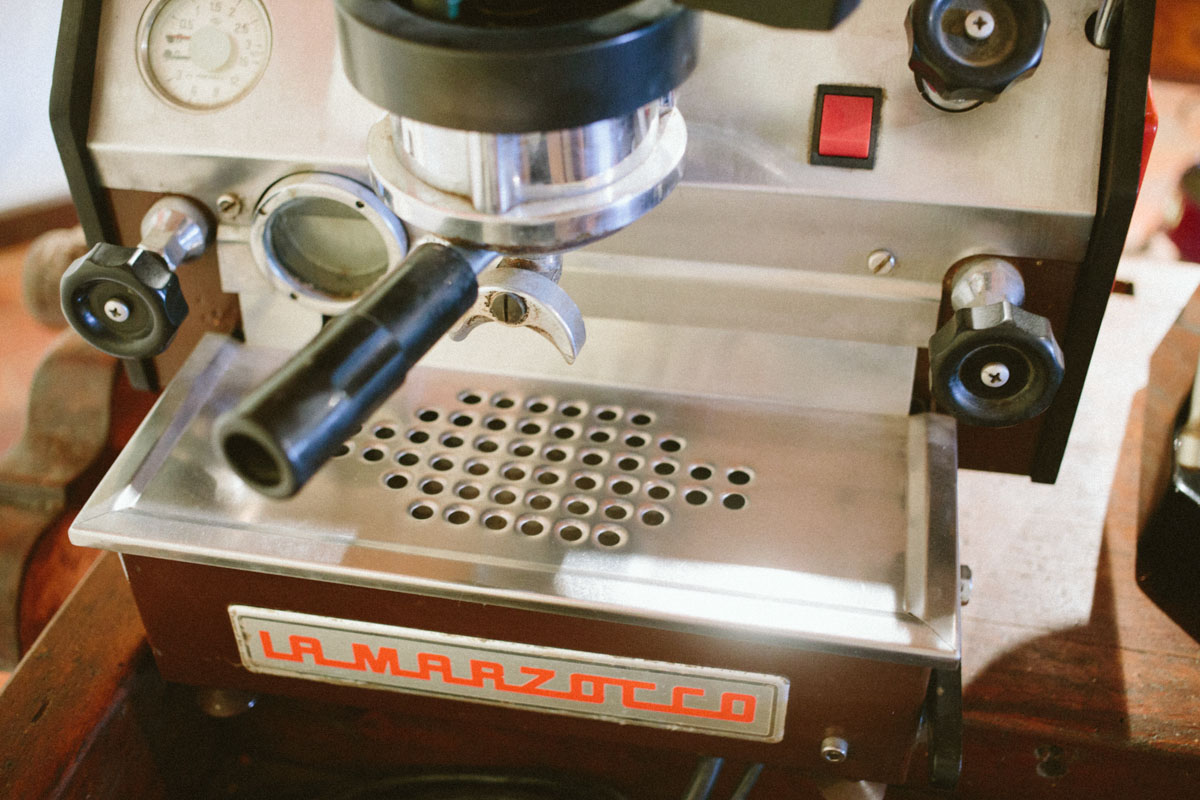
“When you’ve got this kind of environment, you know you have support. If you have a problem or if you see a problem, there’s always someone there to help,” explains Roberto Bianchi, Plant Manager and Director of Research and Development, who’s been with the company since 2000. “We have the pleasure of coming here, seeing these faces, and talking to these people everyday.”
With just over one hundred employees, everyone is a familiar face. During the lunch hour or the day’s riposo, you can hear the chatter and laughter around the office’s café station or canteen in the workshop. “It’s a fever,” Bianchi continues. “You have this want to come to work everyday.”
It’s easy to understand where this dynamic stems from. At eighty one years old, Piero Bambi shows up to the office everyday, eager to take the company further in its upward trajectory. It’s the type of principle that is absolutely infectious and one the company has forged through years of tumultuous circumstances.
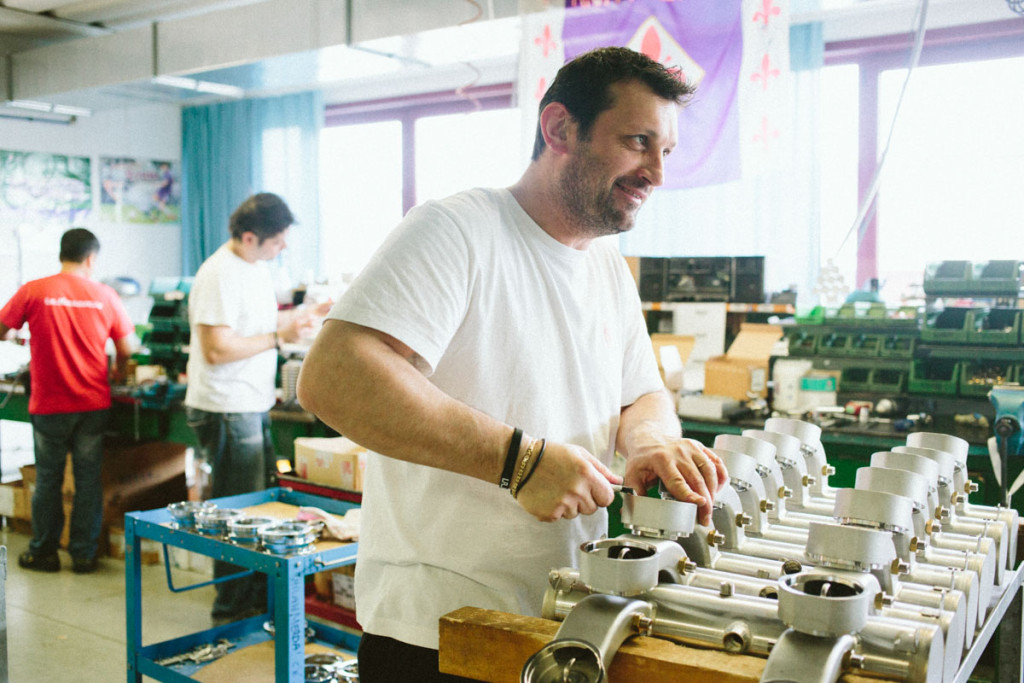
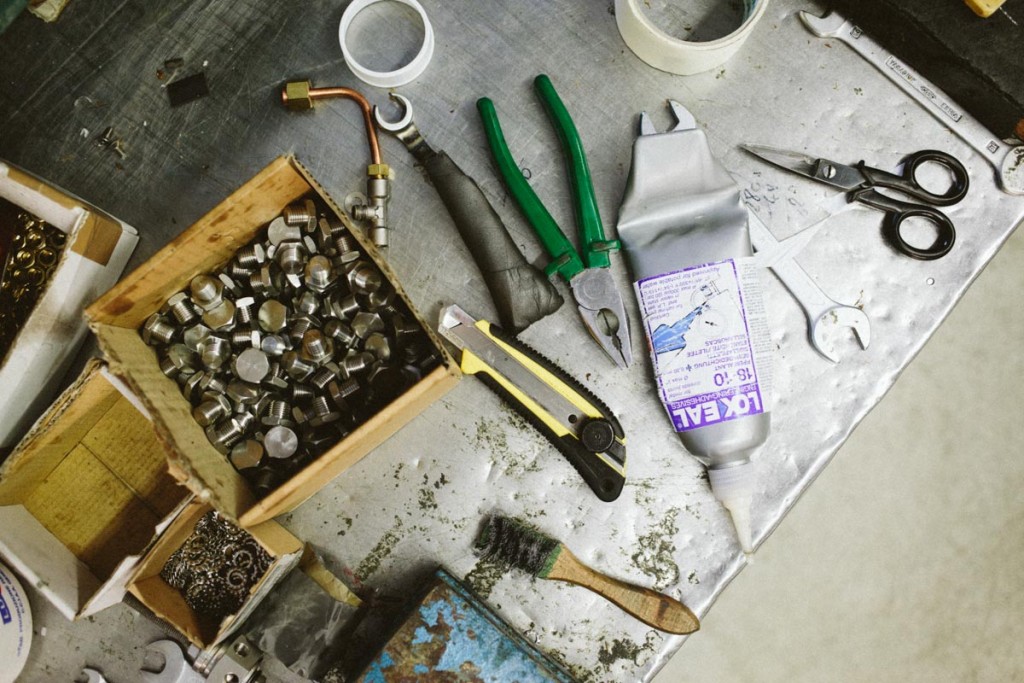
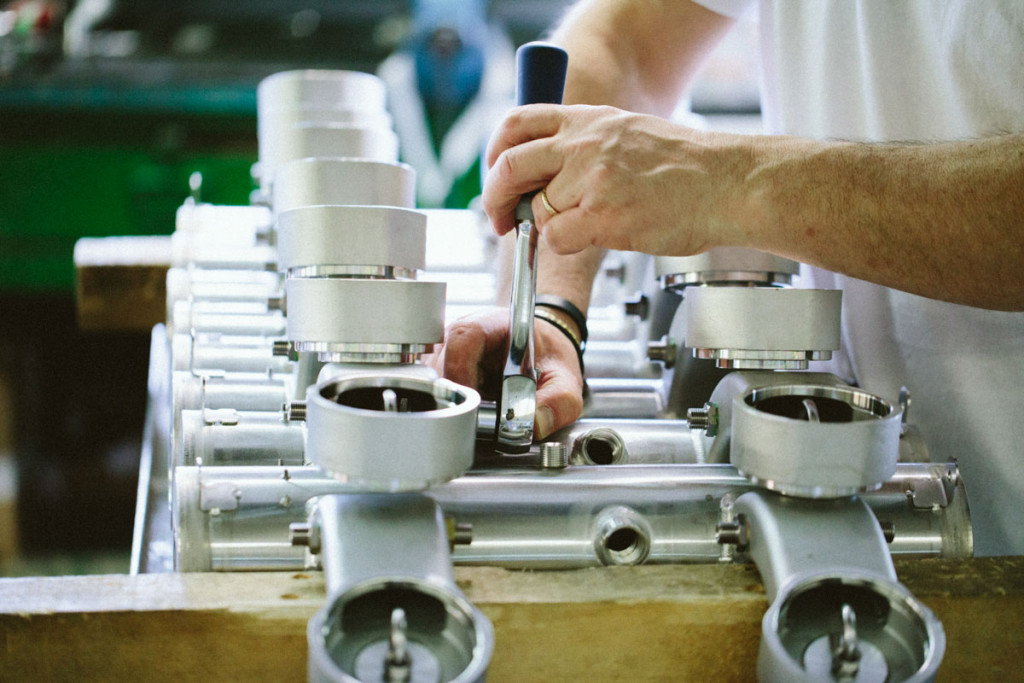
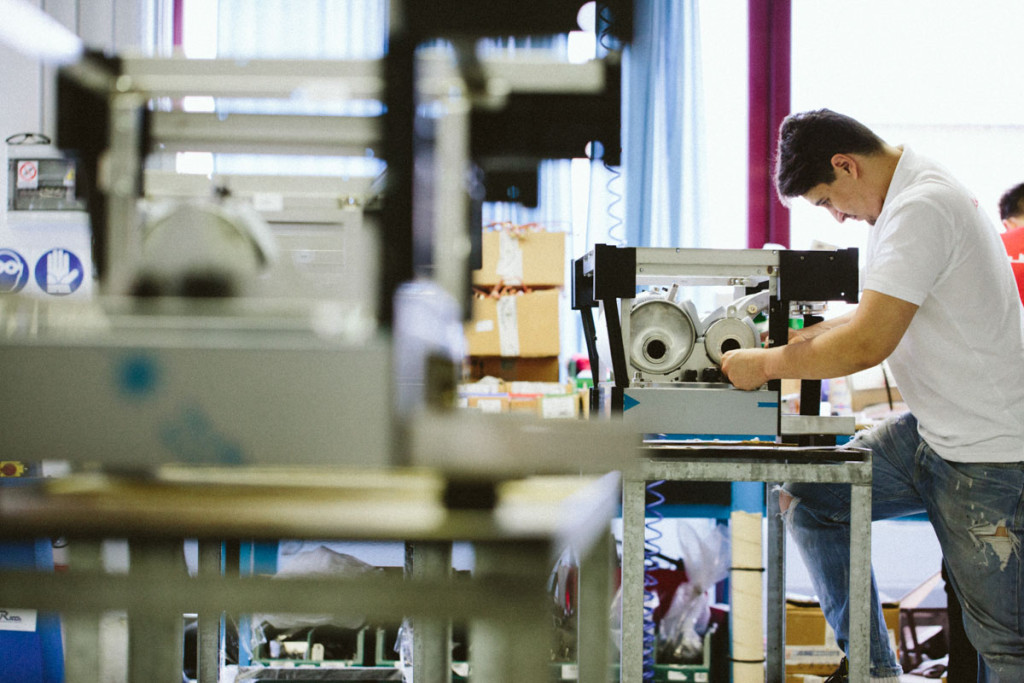
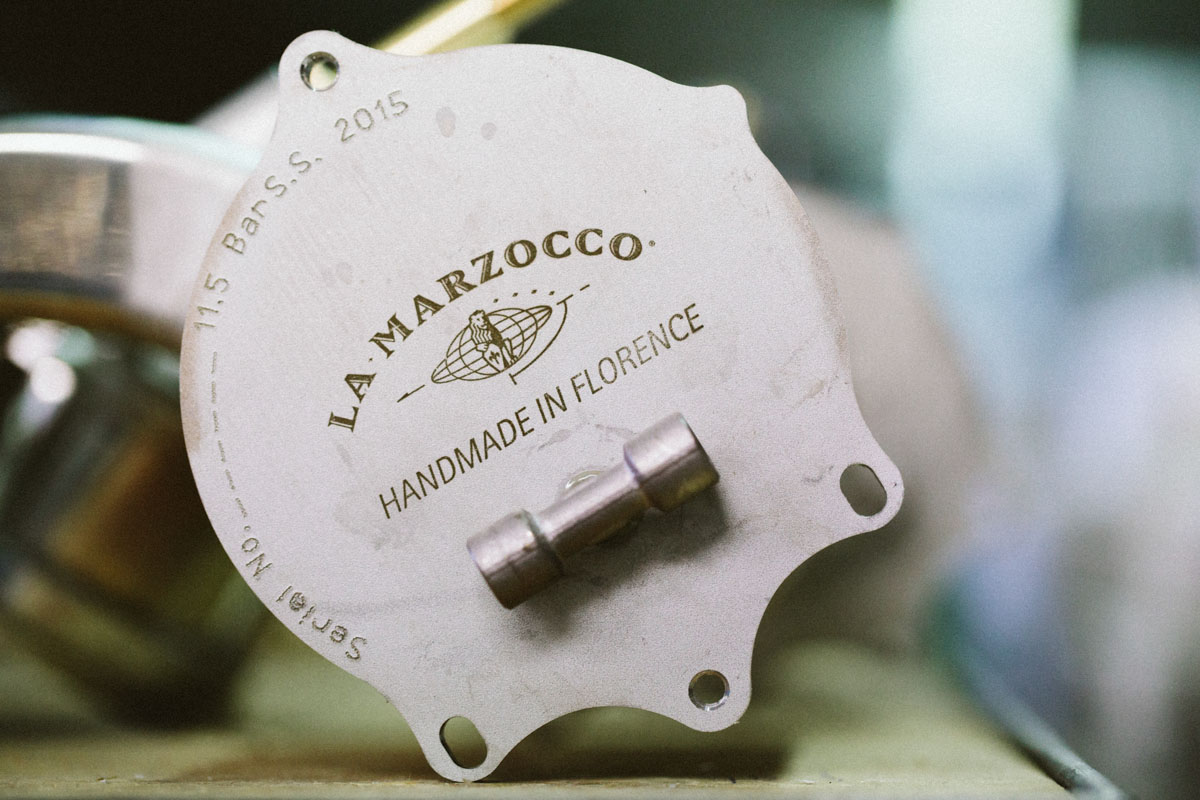
In its early days, La Marzocco experienced a number of challenges. During the Second World War, the company was forced to cease production and many of the first La Marzocco machines were consequently melted down for the metal to be repurposed. At the end of the war in 1945, La Marzocco was forced to jumpstart a nearly twenty-year old company with little equipment and raw materials available, largely starting anew.
As though one catastrophic event wasn’t enough, in 1966 the Flood of the Arno River hit Florence—one of the worst in the city’s recorded history with water levels at four meters high. Many La Marzocco machines and client cafés were badly damaged or completely destroyed. A hard-hitting misfortune to take since Florence was their only market at the time. Though, as a real testament to the Bambi tenacity and the company’s resilience, La Marzocco employed its workers to help restore machines and entire cafés following. With all of the obstacles they’ve overcome, the company emblem—a heraldic lion (“Marzocco”) with the crest of the Florentine lily—is a befitting choice for its representation of success and triumph.
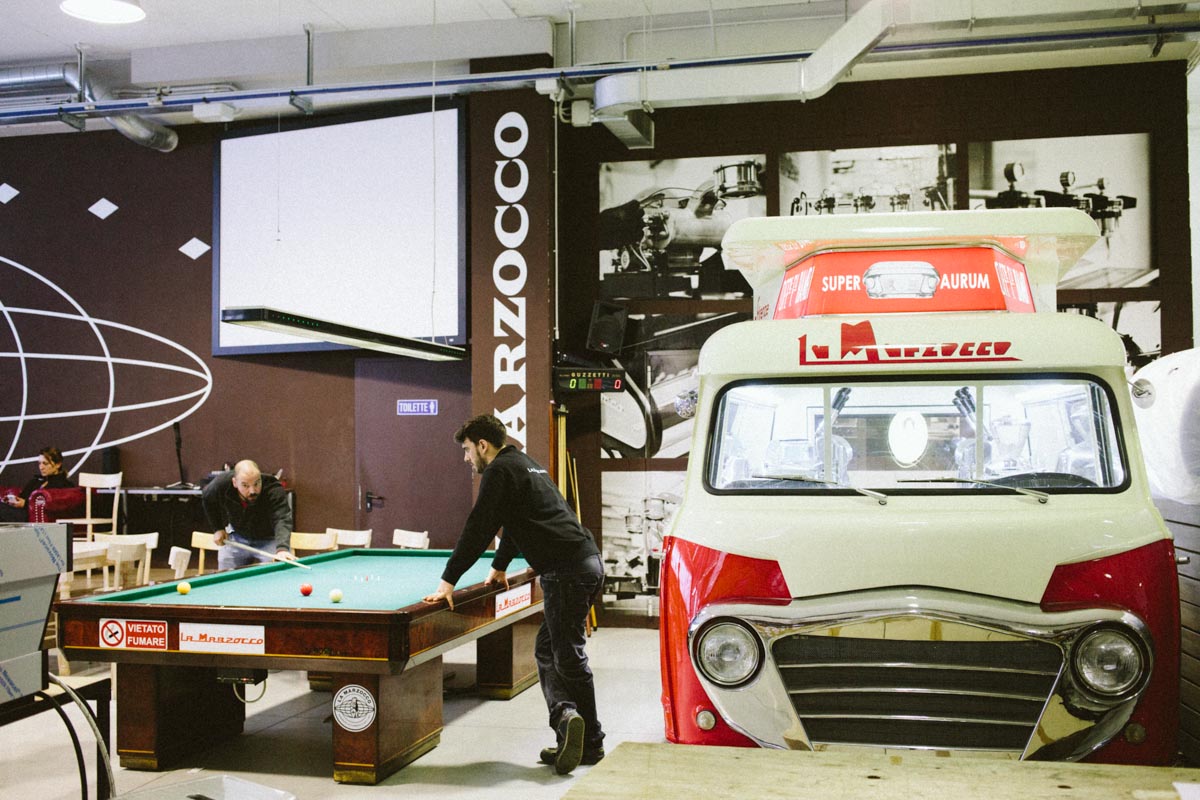
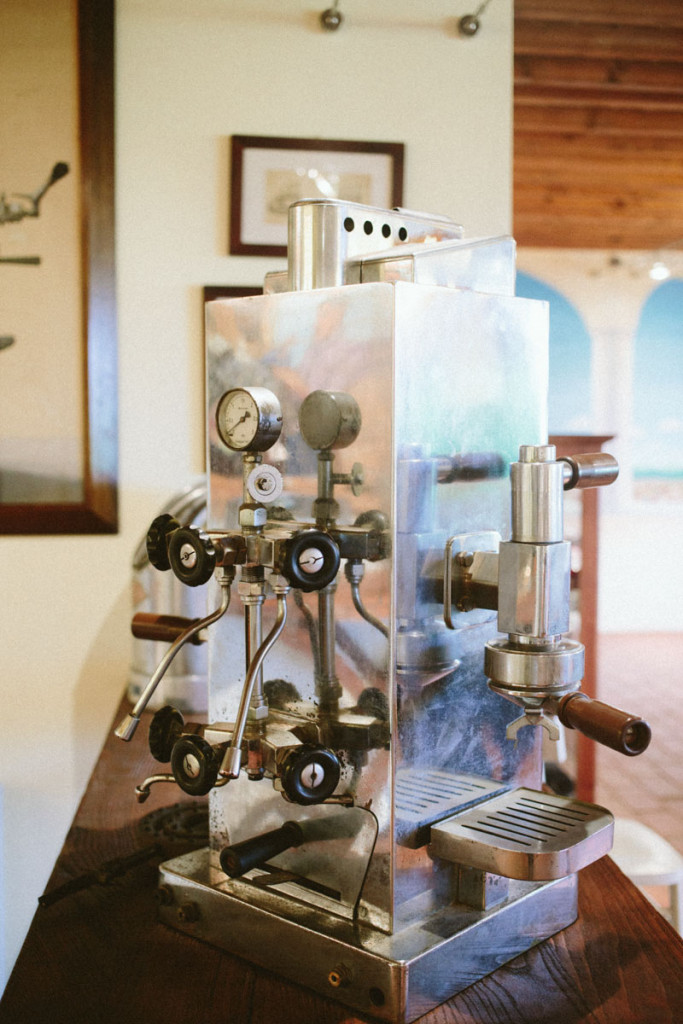
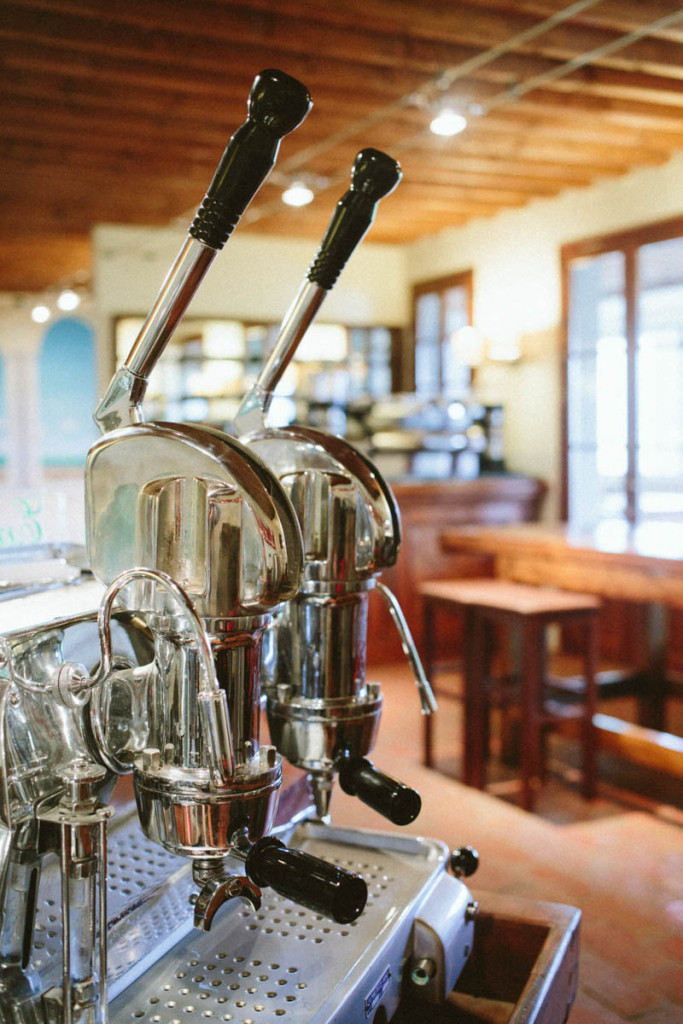
The Flood of the Arno River is just one part of Florentine history that’s impacted the company however. As the birthplace of the Italian Renaissance, much of La Marzocco’s fundamental craftsmanship is tied to such a vocation.
“To say that we come from Florence is something that we are proud of,” Piero states. “The art and craft tradition isn’t something that we can separate from. When you see our machines, you see that as well.” A truism for the brand, the company’s slogan is simply, Handmade in Florence. “Artisan culture is something that cannot be reduced to just the past, it’s something that Florence still has. We have only to let it come out.”
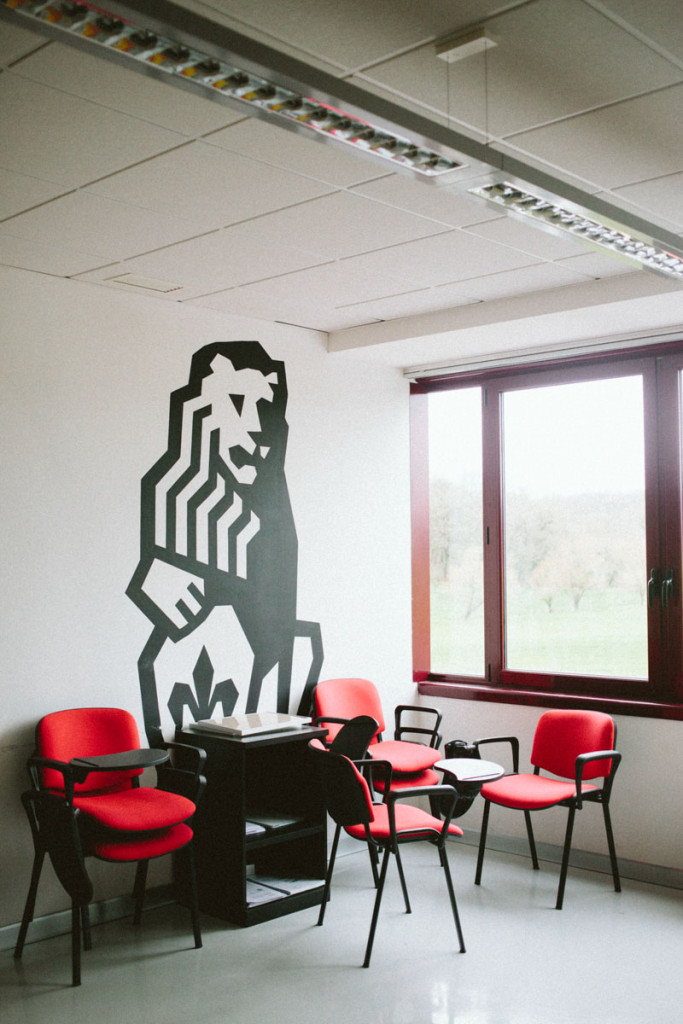
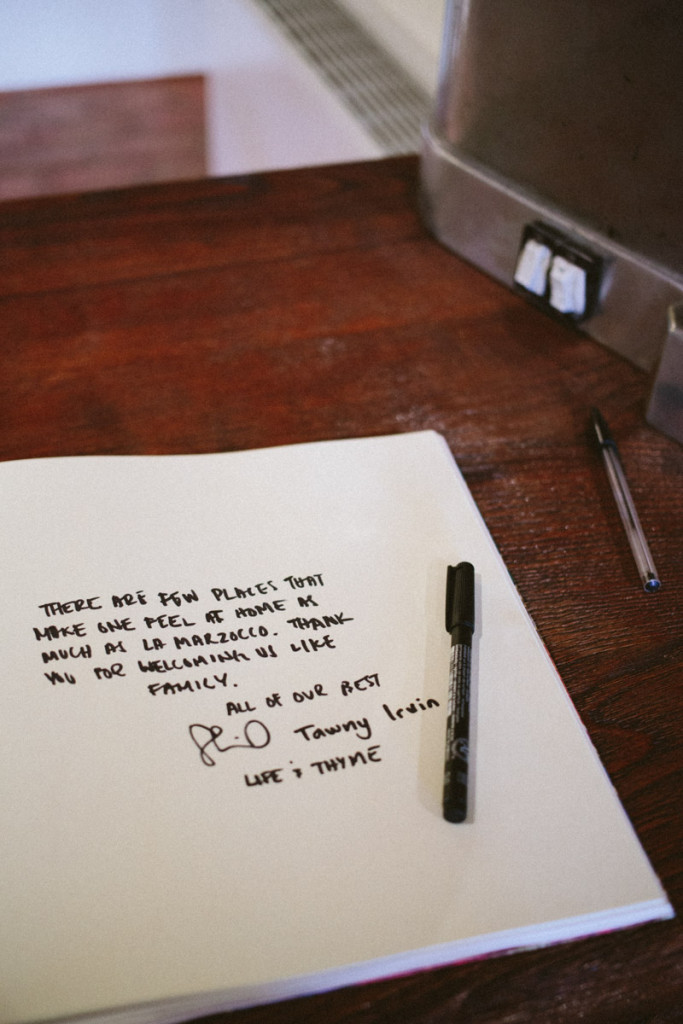
—
Want to read the full story? Find it in Issue Two of Life & Thyme, available to purchase from our online shop or from one of our stockists.

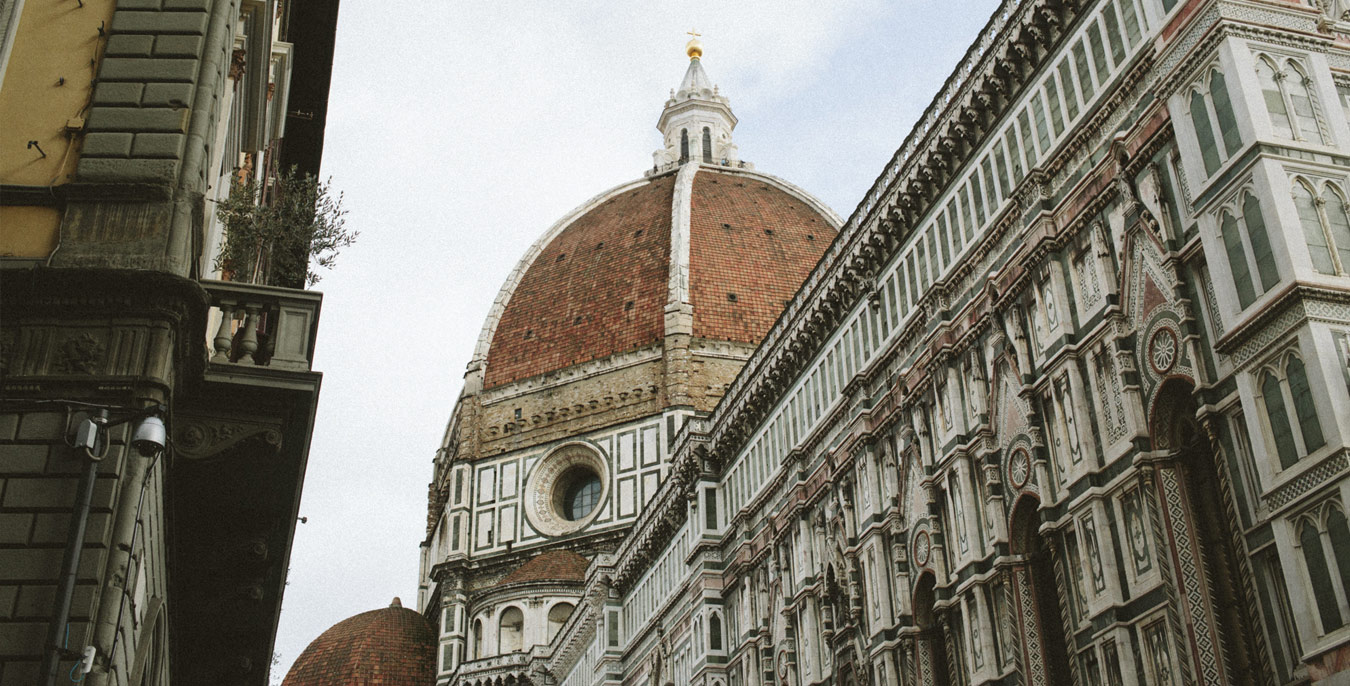

Our comments section is for members only.
Join today to gain exclusive access.